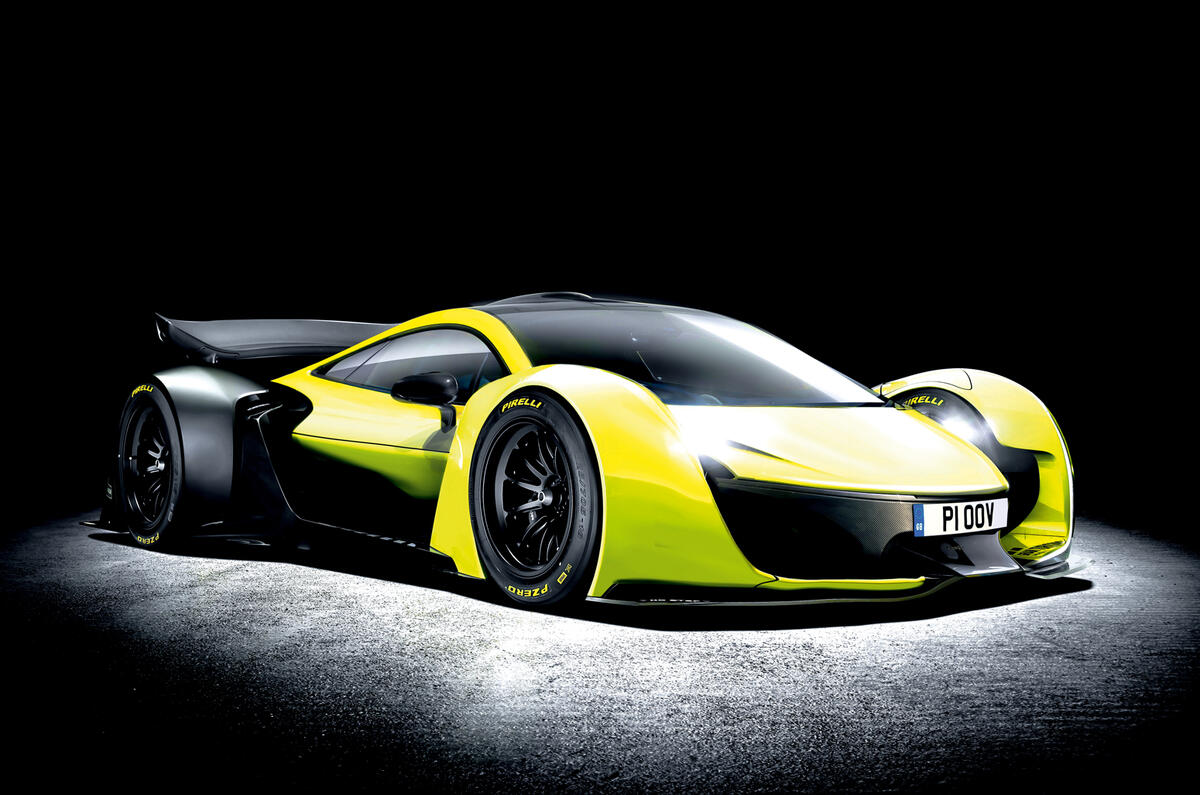McLaren is working on a secret, battery-electric hypercar for its Ultimate Series — the most expensive and most focused of its model classes.
The project will help the firm decide whether the P1’s replacement, expected around 2023, will be a battery-only model or a hybrid like its predecessor.
The move is part of a six-year business plan, revealed in Geneva this week by McLaren CEO Mike Flewitt and dubbed Track22 because it reaches to 2022. Under the plan, McLaren Automotive will double its turnover, invest £1 billion (about 25% of its turnover) on R&D and launch 15 new models — both series and short-run cars — that will replace the entire existing car range on a five-year life cycle.
Around half of these new McLarens will be hybrids and at least one will be a “very special, very focused” Ultimate Series car, although it won’t be a direct a P1 replacement and will “not necessarily” join the million-pound bracket of the P1.
The plan calls for McLaren to continue to build exclusively mid-engined two-seat sports cars. There will be further development of the 3.8-litre V8 that, in various forms, has powered every McLaren since the 12C of 2013. But Flewitt revealed that there will be “an all-new engine architecture” introduced towards the end of the Track22 plan.
In the nearer term, McLaren will launch a Spider version of its just-unveiled 570GT next year. It also plans to follow the success of its 675LT (“perhaps our most successful car ever; it sold out in three weeks,” said Flewitt) by making ‘LT’ an official, track-focused sub-brand for special models. The Track22 plan’s bottom line, according to Flewitt, is that McLaren Automotive will remain “proudly and fiercely independent”.
Flewitt describes McLaren’s new all-electric hypercar as “a one-off prototype” intended to evaluate the benefits of a fully electric powertrain in an Ultimate Series car.
Flewitt said: “This mule will answer one big question about the P1’s replacement: whether it can be a pure battery-electric model. There seems little doubt that a car like that can be built, but we have to satisfy ourselves that it could have the focus, appeal and sheer driver like its predecessor. ourselves that it could have the engagement to match today’s 675LT. We have to know it could be an authentic McLaren.”
Flewitt believes an allelectric P1 replacement would have to offer performance equalling that of today’s car: a 200mph-plus top speed and a 0-100mph time of less than 6.0sec. “You could probably get close to 2.0sec dead for the 0-60mph time,” he said.









Join the debate
Add your comment
How fast..........?!
If it goes more hybrid...